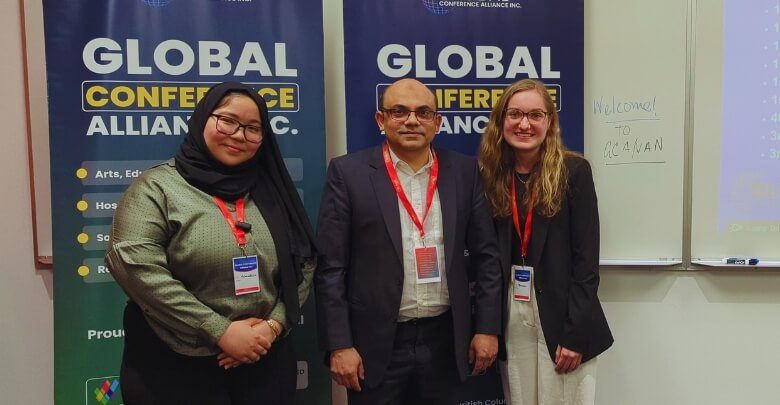Economics is always changing, with new ideas, research, and debates shaping the field. Staying informed and connected is crucial. That’s where economics conferences come in. They’re like knowledge hubs where you can learn and network. However, the dilemma remains: how do i choose right economics conference?
Selecting the perfect economics conference is both an art and a science. It demands careful thought, tailored to your career objectives and passions. It’s like finding a tailored suit that not only fits you perfectly but also reflects your unique style and preferences.
In this blog, we’ll show you how to pick the right economics conference. Whether you’re a student, researcher, or policymaker, we’ll give you the tools to make a smart choice. Let’s begin the journey to find your perfect economics conference.
Concept Of Economics Conference
Economics conferences are like big meet-ups for people who are curious about money and how it affects our lives. These gatherings let folks come together to talk about money, share their ideas, and show what they’ve learned.
At these conferences, you’ll meet all kinds of people, like money experts, government folks, teachers, and business leaders. They chat about lots of money topics, such as how countries handle their money, why people make certain money choices and much more.
Sometimes, these conferences have famous speakers and group discussions. That means you can listen to really smart people who know a ton about money. By attending these events, you not only get smarter about money but also help make the world’s money systems work better. So, if you’re interested in money and want to learn and meet new people, these conferences are the place to be.
Types Types of Economic Conferences People Can Attend
Economic conferences provide valuable insights into various aspects of the global economy. These events cater to diverse interests and sectors, offering participants opportunities to network, learn, and contribute to economic discourse. Here are some types of economic conferences people can attend:
Global Economic Forums
Global economic forums bring together world leaders, policymakers, and business magnates to discuss critical global economic issues. Participants engage in high-level discussions and debates on topics such as trade, geopolitics, and sustainable development.
Industry-Specific Conferences
Industry-specific economic conferences focus on a particular sector, like finance, technology, or healthcare. Attendees gain sector-specific knowledge, network with experts, and explore emerging trends affecting their industries.
Investment Conferences
Investment conferences attract investors and financial professionals seeking market insights. These events cover topics like asset allocation, portfolio management, and investment strategies through expert presentations and panel discussions.
Startup and Entrepreneurship Summits
Startup and entrepreneurship summits provide a platform for aspiring entrepreneurs and innovators. Participants can pitch ideas, learn from successful founders, and connect with potential investors.
Regional Economic Summits
Regional economic summits focus on economic issues specific to a particular geographic area, such as a continent, country, or city. They address regional challenges, trade agreements, and economic integration.
Academic Economic Conferences
Academic economic conferences are for scholars and researchers to present their findings and exchange ideas. These events foster intellectual discussions on economic theories, empirical research, and policy implications.
These diverse types of economic conferences cater to a wide range of interests and professionals, offering valuable opportunities for learning, networking, and contributing to the economic dialogue on both a global and local scale.
How Do I Choose Right Economics Conference?
Choosing the right economics conference can significantly impact your professional growth and networking opportunities. To help you make an informed decision, follow this step-by-step guide on “how do I choose the right economics conference?”
Step 1: Clarify Your Objectives and Goals
Begin by clearly defining your professional objectives. Determine whether you aim to gain industry insights, network with specific professionals, present your research findings or achieve other specific goals. Identifying your objectives will serve as the cornerstone for selecting the right conference.
Step 2: Research Conference Themes and Topics
Delve into the conference themes and topics. Ensure that they align closely with your areas of interest and professional aspirations. Seek out events that address economic issues or domains that resonate with your career path.
Step 3: Consider Location and Timing
Take into account the geographical location and timing of the conference. Evaluate factors such as travel expenses, visa requirements, and your availability. Opt for a venue and date that offer convenience and suitability for your participation.
Step 4: Examine the Roster of Speakers and Presenters
Scrutinize the list of speakers and presenters scheduled for the conference. A reputable event often features experts and thought leaders in the field. Confirm that the lineup includes individuals whose insights and expertise you admire.
Step 5: Review Feedback from Past Attendees
Gather insights from previous conference attendees. Explore reviews, testimonials, or discussions on social media platforms related to the event. Such feedback can offer valuable perspectives on the conference’s quality and networking opportunities.
Step 6:Assess Budget and Costs
Calculate the overall cost associated with attending the conference. Account for registration fees, accommodation, and travel expenses. Align your budget with these costs and explore any available discounts or scholarships.
Step 7: Engage with Conference Organizers
Initiate contact with the conference organizers to address any inquiries or uncertainties you may have. This interaction can provide clarification on specific details and offer a glimpse into the event’s organizational quality and responsiveness.
Step 8: Evaluate Networking Opportunities
Consider the networking prospects presented by the conference. Seek out events such as receptions, workshops, or roundtable discussions that facilitate meaningful connections with peers and industry professionals.
Step 9: Analyze the Agenda and Sessions
Thoroughly review the conference agenda and session topics. Ensure that there are sessions directly pertinent to your interests and objectives. A well-structured agenda enhances your learning experience.
Step 10: Make Your Informed Decision
After weighing these factors comprehensively, make your final decision. Choose the economics conference that most closely aligns with your professional objectives, provides valuable content, and fits within your budget and scheduling constraints.
With these detailed steps, you can confidently navigate the process of selecting the right economics conference, one that promises to enrich your knowledge, broaden your network, and contribute significantly to your career advancement.
Benefits of Attending Right Economics Conference
Attending an economics conference can bring valuable advantages to your professional journey. In this guide, we’ll explore the various benefits, from knowledge enrichment to networking, that make these events a worthwhile investment in your career.
Knowledge Enrichment
Economics conferences provide a platform to access cutting-edge research, insights, and emerging trends. Engaging with experts and attending sessions can deepen your understanding of economic concepts.
Networking Opportunities
Conferences facilitate valuable networking with fellow professionals, scholars, and industry leaders. Building these connections can open doors to collaborations, job opportunities, and insightful discussions, ultimately enhancing your professional network and potential.
Exposure to Diverse Perspectives
Interacting with attendees from various backgrounds and regions exposes you to diverse viewpoints and global economic perspectives. This broadens your horizons and enriches your critical thinking.
Stay Updated and Relevant
Attending conferences keeps you up-to-date with the latest developments in your field, ensuring you remain current in a constantly evolving economic landscape. This knowledge is essential for career growth and positions you as an informed and adaptable professional.
Professional Development
Many conferences offer workshops, seminars, and skill-building sessions that go beyond theoretical knowledge. These opportunities enhance your professional skills, from improving presentation techniques to honing data analysis abilities, empowering you to excel in your chosen career path.
Showcase Your Expertise
Presenting your research or insights at a conference can boost your professional reputation. It provides a platform to share your expertise with a wider audience, receive valuable feedback from peers, and solidify your position as a thought leader or expert in your field.
Attending the right economics conference not only expands your knowledge base but also offers unparalleled networking, diverse perspectives, and opportunities for personal and professional growth. It’s a strategic investment in your career that can lead to long-term benefits.
Unforeseen Challenges While Choosing the Right Conference
Selecting the ideal conference can be a complex task. Along the way, you may encounter unforeseen challenges that can impact your decision. Here are some common challenges to be aware of:
- Limited Budget: Unexpected costs like travel or accommodation expenses may strain your budget.
- Scheduling Conflicts: Finding a conference that fits your schedule can be challenging, especially if you have prior commitments.
- Location Constraints: Conference locations may pose travel restrictions or visa issues for international attendees.
- Last-Minute Cancellations: Speakers or key participants may cancel, affecting the event’s quality.
- Overlapping Themes: Conferences with similar themes might make choosing between them difficult.
- Lack of Diversity: Some conferences may lack diverse perspectives, limiting networking opportunities.
- Registration Limits: Limited slots may prevent your attendance even if you decide to go.
- Unanticipated Content: The actual content may not match your expectations or needs.
- Networking Hurdles: Difficulty in connecting with relevant professionals can hinder your experience.
- Accessibility Challenges: Conferences with physical or technological accessibility issues can be problematic for attendees.
Navigating these challenges requires careful planning and adaptability when selecting the right conference for your goals.
Bottom Line
In conclusion, the journey to finding the perfect economics conference is akin to selecting a tailored suit that not only fits but also resonates with your unique style and career aspirations. The articles we’ve explored have shed light on the significance of economics conferences, the diverse types available, and the step-by-step guide to choosing the right one.
Economics conferences serve as knowledge hubs, fostering networking, knowledge enrichment, and exposure to diverse perspectives. They are essential for staying updated and relevant in a dynamic field. The guide on “how do I choose right economics conference?” offers practical insights for attendees at every career stage, ensuring that they make informed choices aligned with their goals.
So, whether you are a student, researcher, or policymaker, remember that selecting the right economics conference is a strategic decision that can significantly impact your professional growth and networking opportunities.







